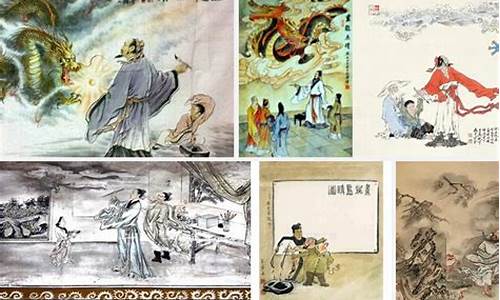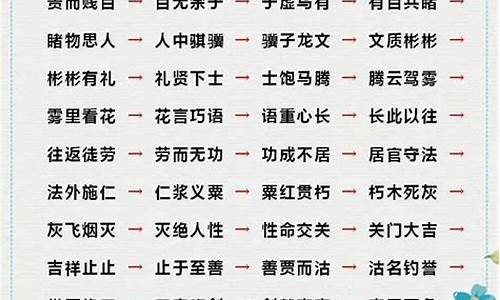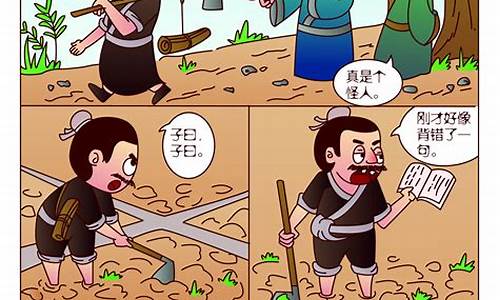成语英语翻译大全_成语英语翻译大全简短
大家好,我是小编,今天我要和大家分享一下关于成语英语翻译大全的问题。为了让大家更容易理解,我将这个问题进行了归纳整理,现在就一起来看看吧。
1.经典英语成语故事及翻译(五篇)
2.成语的英文翻译
3.英文翻译里四字成语
4.我需要成语(带反义词)要翻译成英语
5.有关英语的成语大全
6.中文四字成语的英译及其翻译策略

经典英语成语故事及翻译(五篇)
#能力训练# 导语成语在古代汉语与现代汉语的传承上占有重要的地位,它是汉语词汇系统中重要而又极富特色的组成部分。下面是 无 分享的经典英语成语故事及翻译经典英语成语故事及翻译(五篇)。欢迎阅读参考!
1.经典英语成语故事及翻译
卧薪尝胆
During the Spring and Autumn period (770-476BC), the State of Wu launched an attack against the State of Yue. The King of Wu was seriously wounded and soon died. His son Fu Chai became the new King. Fu was determined to get revenge. He drilled his army rigidly until it was a perfect fighting force. Three years later, he led his army against the State of Yue and caught its king Gou Jian. Fu took him to the State of Wu.
春秋时期,吴国和越国之间进行了一场战争,吴王不幸受了重伤,不久就死了。他的儿子夫差作了吴国的新国王,他发誓要替父亲报仇。于是,他严格的操练他的士兵,把他们训练成了一支非常厉害的军队。三年以后,他对越国发动了战争,抓住了越王勾践,把他带回了吴国。
In order to avenge his father's death, Fu let him live in a shabby stone house by his father's tomb and ordered him to raise horses for him. Gou pretended to be loyal to Fu but he never forgot his humiliation. Many years later, he was set free. Gou secretly accumulated a military force after he went back to his own state. In order to make himself tougher he slept on firewood and ate a gall-bladder before having dinner and going to bed every night. At the same time he administered his state carefully, developing agriculture and educating the people. After a few years, his country became strong. Then Gou seized a favorable opportunity to wipe out the State of Wu.
为了复仇,夫差让勾践住在他父亲墓旁的破石屋里天天看墓、喂马。勾践表面上服从,心里面却想着复仇。几年以后,勾践被放回越国。他立刻开始秘密聚集一支军队。为了提醒自己不要忘了报仇,他睡在柴上,还每天在吃饭睡觉前尝一尝苦胆。同时,他专心治理国家,大力发展农业,加强民众教育。几年后,越国又变得强大起来,然后,勾践抓住一个适当的机会消灭了吴国。
Later, people use it to describe one who endures self-imposed hardships to strengthen one's resolve to realize one's ambition.
后来,人们用它来形容人刻苦自励以达到自己定下的目标。
2.经典英语成语故事及翻译
望梅止渴
Quenching Thirst by Watching Plums
One summer, Cao Cao was leading his troops in a punitive expedition against Zhang Xiu. It was extraordinarily hot. The burning sun was like a fire, and the sky was cloudless. The soldiers were walking on the winding mountain paths. The dense forest and the hot rocks exposed to the sun on both sides of the paths made the soldiers feel suffocated. By noontime the soldiers' clothes were wet through with sweat, and the marching speed slowed down. Some solders of weak physique even fainted on the roadside.
Seeing that the marching speed was slower and slower, Cao Cao was very worried because he feared that he might bungle the chance of winning the battle. But how could they quicken their speed? Cao Cao at once callde the guide and asked him on the quiet whether there was a source of water nearby. The guide shook his head, saying that the spring water was on the other side of the mountain, which was very far to have to make a detour to reach. Cao Cao realized that time didn't permit them to make such a detour. After thinking for a moment, he said to the guide, "Keep quiet. I'll find a way out." He knew that it would be to no avail to order his troops to quicken the steps. He had a brain wave and found a good solution. He spurred his horse and came to the head of the column. Pointing his horsewhip to the front, Cao Cao said, "Soldiers, I know there is a big forest of plums ahead. The plums there are both big and delicious. let's hurry along, and we will reach the forest of plums after bypassing this hill." When the solders heard this, they immediately slobbered. Picturing in their minds the sweet and sour flavour of the plums, the soldiers felt as if they were actually eating the plums, the soldiers felt as if they were actually eating the plums themselves. The morale greatly boosted, the soldiers quickened their steps a great deal automatically.
This story comes from "The Fake Tangery" in Anecdotes of This World by Liu Yiqing of the Southern Dynasties period (420-589). From this story, people have derived the set phrase "quenching thirst by watching plums" to refer to trying to comfort oneself of others by idle dreams.
有一年夏天,曹操率领部队去讨伐张绣,天气热得出奇,骄阳似火,天上一丝云彩也没有,部队在弯弯曲曲的山道上行走,两边密密的树木和被阳光晒得滚烫的山石,让人透不过气来。到了中午时分,士兵的衣服都湿透了,行军的速度也慢下来,有几个体弱的士兵竟晕倒在路边。
曹操看行军的速度越来越慢,担心贻误战机,心里很是着急。可是,眼下几万人马连水都喝不上,又怎么能加快速度呢?他立刻叫来向导,悄悄问他:“这附近可有水源?”向导摇摇头说:“泉水在山谷的那一边,要绕道过去还有很远的路程。”曹操想了一下说,“不行,时间来不及。”他看了看前边的树林,沉思了一会儿,对向导说:“你什么也别说,我来想办法。”他知道此刻即使下命令要求部队加快速度也无济于事。脑筋一转,办法来了,他一夹马肚子,快速赶到队伍前面,用马鞭指着前方说:“士兵们,我知道前面有一大片梅林,那里的梅子又大又好吃,我们快点赶路,绕过这个山丘就到梅林了!”士兵们一听,仿佛已经吃到嘴里,精神大振,步伐不由得加快了许多。
故事出自《世说新语?假谲》。成语“望梅止渴”,比喻用空想安慰自己或他人。
3.经典英语成语故事及翻译
一鸣惊人
In the Warring States Period, Duke Wei of Qi neglected state affairs, for the first three years of his reign, giving himself over to dissipation. One of his ministers, Chun Yukun who had a good sense of humour, said to him: 'There is a big bird which has neither taken wing nor sung for three years.' The duke answered, 'Once that bird starts to fly and sing, it will astonish the world.' The duke thereupon devoted himself to his duties and built his state up into a powerful one.
战国时代,齐威王即位后做了三年国君,只顾享乐,不理政事。有个善于说笑话的人叫淳于髡,一天对齐威王说:“城里有一只大鸟,三年不飞也不叫,你知道这是什么道理?”齐威王说:“这鸟不飞则罢,一飞就冲天;不鸣则罢,一鸣就惊人。”在淳于髡的激发下,齐威王开始治理国家,取得很大成绩,齐国的声威一直保持了几十年。
4.经典英语成语故事及翻译
精卫填海
Once upon a time, the youngest daughter of Emperor Yan, legendary ruler of primitive China, went boating on the Eastern Sea. While she was enjoying herself, a strong wind rose on the sea and her boat capsized. Just before she was buried by the surging waves, her spirit turned into a beautiful bird. As it flew over the roaring sea, it cried sadly in the sound "jinwei, jingwei". That was why people called it "Jingwei".
The bird lived on a mountain near the sea. It hated the sea so much that it decided to fill it up. Every day, it flew to and fro between the mountain and the sea, carrying in a twig or a pebble from the mountain and dropping it into the sea.
One day, the roaring sea said to Jingwei, "Poor little bird, stop doing that meaningless thing! You'll never fill me up." Jingwei replied, "I'll fill you up no doubt! I will, even if it'll take me thousands of years! I'll fight on until doomsday!"
The brave little bird kept carrying twigs and pebbles from the mountain to the Eastern Sea without taking a rest.
From this fable comes the idiom "The bird Jingwei trying to fill the sea". We use it to describe people who are firm and indomitable and will not stop until they reach their goal.
从前,炎帝(传说中中国原始社会的统治者)的小女儿在东海上划船。正当她划得高兴时,海面上突然升起一阵大风,把她的小船弄翻了。就在她要被汹涌的波浪吞 没时,她的灵魂变成了一只美丽的小鸟。它飞过那咆哮的海面,伤心的叫着"精卫,精卫"的声音。所以人们就叫她"精卫"。
精卫鸟住在靠海的一座山上。它非常恨大海,所以决心要把它填平。它每天来回于山海之间,把从山上衔来的小树枝和小石子扔在大海里。
一天,咆哮的大海对精卫说:"可怜的小鸟,停止你那无谓的举动吧!你是永远都填不平我的。" 精卫回答说:"我当然会把你填平的!即使这需要千千万万年的时间,我也一定会斗争到底,直到你的末日来临!"
这只勇敢的小鸟继续从山上衔来小树枝和小石子,扔到东海中,从未有片刻休息。
"精卫填海"这个成语就是由这个传说而来的,形容那些坚定不移,不屈不挠,不到目的决不罢休的人。
5.经典英语成语故事及翻译
fail the exam
名落孙山
In the Song Dynasty (宋朝) there was a joker called Sun Shan(孙山).
宋朝有一个很幽默的人,他叫孙山。
One year he went to take the imperialexamination, and came bottomof the listof successfulcandidates.
有一年他去参加考试,公布名单时他是最后一名。
Back in his hometown, one of his neighbor asked him whetherthe neighbor's son had also passed.
回到家,他的邻居向他打听自己的儿子考得怎么样。
Sun Shan said, with a smile:"Sun Shan was the last on the list. Your son came after Sun Shan."
孙山笑着对邻居说:“孙山考了最后一名,你儿子的名字还在孙山的后面呢。”
The peopleused this idiom to indicatefailing in an examination or competition.
人们用“名落孙山”来比喻考试没有考上或者选拔没有被录取。
成语的英文翻译
#能力训练# 导语成语是语言中的精华,是历史的产物,是人类智慧的结晶。下面是 考 网分享的精选成语故事中英文大全。欢迎阅读参考!
1.精选成语故事中英文
惊弓之鸟
In the Warring States Period, there was a man in the State of Wei called Geng Lei. One day he said to the king: 'I can shoot down birds by simply plucking my bowstring.' When the king expressed doubt, Geng Lei pointed his bow at a wild goose flying in the sky, twanged the bowstring, and the goose fell to the ground. Geng Lei said, 'This goose has been hurt in the past. Hearing the twang of the bowstring, it assumed that it was doomed. So it simply gave up trying to live.
战国时期(公元前403―221年中国中原地区各诸侯国连年争战的时代)魏国有个名叫更羸的人。一天,他对国王说:“我只要拉开弓,空射一下,就能把天上的鸟射下来。”国王不相信。更羸便对准天上飞来的一只雁射去,果真那只雁听到拉弦的声音就掉了下来。国王感到很奇怪。更羸说,“那是一只受过伤的雁。它一听到我拉开弓弦的声响,就惊慌得支持不住,自然要掉下来了。”
This idiom means that if one has been frightened in the past one's will may become paralysed in a similar situation.
“惊弓之鸟”这个成语比喻受过惊恐之后,有一点动静就特别害怕。
2.精选成语故事中英文
蛙臂挡车
One day, Zhuang Gong, King of the State of Qi, went out in a chariot to hunt.
一天,齐庄公乘车外出打猎。
On the way, he saw a small insect raise both its arms, trying to stop the wheels of the chariot. Zhuang Gong of Qi was curious and asked the driver:
路上,他看见一只小虫举起双臂,想阻挡车轮前进。齐庄公很好奇,就问车夫:
"What kind of insect is it?"
“这是什么虫子?”
"It is a mantis," the driver replied promptly. "This kind of insect only knows how to advance but not retreat, blindly underrating its enemies and overrating its own abilities."
车夫连忙回答:“这是蝗螂。这种虫子只知前进,不知后退,盲目轻敌,不自量力。”
Hearing the driver's reply, Zhuang Gong smiled to himself and remained silent.
听了车夫的回答,庄公暗自发笑,默默无语。
3.精选成语故事中英文
画蛇添足
Long long ago, several people had a jar of wine among them and all of them wanted to drink it by himself。 So they set a rule that every one would draw a snake on the 4 12 ground and the man who finished first would have the wine。 One man finished his snake very soon and he was about to drink the wine when he saw the others were still busy drawing, so he decided to draw the feet to the snake。 However, before he could finish the feet, another man finished and grabbed the jar from him, saying, "Who has ever seen a snake with feet?” The story of "Draw a snake and add feet to It。” tells us going too far is as bad as not going far enough。
古时几个人分一壶酒。他们都想独自喝完那壶酒,所以就定了一个规矩:每人在地上画一条蛇,谁画得最快,这壶酒就归谁。有一个人很快就把蛇画好了。他正打算喝这壶酒时,看见别人都还在忙着画,就决定给蛇再画上几只脚。结果,他的蛇脚还没加完,另一个人已经把蛇画好了。那人一下把酒壶夺了过去,说:“有谁见过长脚的蛇?”。这个故事告诉我们这样的道理:做得过分和做得不够都是不对的。
4.精选成语故事中英文
Making His Mark
刻舟求剑
A man from the state of Chu was taking a boat across a river when he dropped his sword into the water carelessly. Immediately he made a mark on the side of the boat where the sword dropped, hoping to find it later. When the boat stopped moving, he went into the water to search for his sword at the place where he had marked the boat. As we know, the boat had moved but the sword had not. Isnt this a very foolish way to look for a sword?
楚国有个人坐船渡江时,他不小心把自己的一把宝剑掉落江中。他马上掏出一把小刀,在宝剑落水的船舷上刻上一个记号。船靠岸后,那楚人立即从船上刻记号的地方跳下水去捞取掉落的宝剑。他怎么找得到宝剑呢?船继续行驶,而宝剑却不会再移动。像他这样去找剑,真是太愚蠢可笑了。
5.精选成语故事中英文
亡羊补牢
Once upon a time there lived a nomadic, raise dozens of sheep, grazing during the day, night into a with straw and wooden objects inside the shelter.
One morning, the herdsmen to the sheep, found little a sheep. Original pen broke a hole, night Wolf out of the hole drilled to come in, put a sheep diao away.
Neighbor advised him said: "the sheepfold quickly repaired, the hole plug. "
He said: "the sheep have been lost, but also to repair the sheep pen do? " Didnt accept his neighbors kind advice.
The next morning, he went to sheep and found a sheep was missing. Originally the Wolf from the inside of the hole into the sheepfold, and walked a sheep diao.
The herdsmen regret not to recognize directly by the neighbors advice, to take timely remedial measures. So he quickly plug that hole, again from the overall reinforcement, firmly and mend the sheepfold.
Since then, the sheep herders have never been Wolf diao has come.
Herdsmens story tells us: make a mistake, suffer setbacks, it is a common phenomenon. As long as can learn seriously, to take remedial measures in time, can avoid continue to make mistakes, suffer greater losses.
翻译:亡羊补牢
从前有一个牧民,养了几十只羊,白天放牧,晚上赶进一个用柴草和木桩等物围起来的羊圈内。
一天早晨,这个牧民去放羊,发现羊少了一只。原来羊圈破了个窟窿,夜间有狼从窟窿里钻了进来,把一只羊叼走了。
邻居劝告他说:“赶快把羊圈修一修,堵上那个窟窿吧。”他说:“羊已经丢了,还去修羊圈干什么呢?”没有接受邻居的好心劝告。
第二天早上,他去放羊,发现又少了一只羊。原来狼又从窟窿里钻进羊圈,又叼走了一只羊。
这位牧民很后悔没有认直接受邻居的劝告,去及时采取补救措施。于是,他赶紧堵上那个窟窿,又从整体进行加固,把羊圈修得牢牢实实的。
从此,这个牧民的羊就再也没有被野狼叼走过了。
牧民的故事告诉我们:犯了错误,遭到挫折,这是常见的现象。只要能认真吸取教训,及时采取补救措施,就可以避免继续犯错误,遭受更大的损失。
英文翻译里四字成语
非常高兴能够帮你解答问题,希望能够真心帮助到你,谢谢
愚公移山 ,刻舟求剑
The foolish old man, who removed the mountains. Carve on gunwale of a moving boat。
互相矛盾 。 孟母三迁
Contradictory.Mencius' mother moves her home three times to better her son's education。
我需要成语(带反义词)要翻译成英语
1. 英语的四字词语
繁荣昌盛thriving and prosperous爱不释手fondle admiringly爱财如命skin a flea for its hide爱屋及乌love me, love my dog. He that loves the tree loves the branch恨屋及乌:He who hates Peter har his dog.)安居乐业live and work in peace and contentment白手起家build up from nothing / build up from scratch /start from scratch百里挑一one in a hundred / the cream of the crop百折不挠be indomitable半途而废give up halfway leave sth. Unfinished包罗万象all-embracing all-inclusive饱经风霜weather-beaten卑躬屈膝bow and scrape cringe悲欢离合vicissitudes of life背道而驰run counter to run in the opposite direction本末倒置put the cart before the horse笨鸟先飞the slow need to start early必由之路the only way闭关自守close the country to international intercourse变本加厉be further intensified变化无常chop and change fantasticality 变化无常chop and change fantasticality别开生面having sth. New别有用心have ulterior motives彬彬有礼refined and courteous urbane兵不厌诈in war nothing is too deceitful博古通今erudite and informed不败之地incincible position不耻下问feel not ashamed to learn from one's subordinates不可救药be past praying for beyond redemption不劳而获reap where one has not sown不屈不挠fortitude indefatigability perseverance persevere tenacity不速之客crasher uninvited guest不同凡响outstanding不言而喻speak for itself tell its own story tell its own tale went without saying不遗余力spare no effort spare no pains不以为然not approve object to不义之财filthy lucre filthy pelf the mammon of unrighteousness不亦乐乎extremely不远千里go to the trouble of travelling a long distance不约而同happen to coincide不择手段by any kind of means by hook or crook play hard by fair means or foul不知所措be at a loss be all adrift lose one's head out of one's wits才疏学浅have little talent and learning惨绝人寰extremely cruel沧海桑田time brings a great change to the worlds沧海一粟/九牛一毛a drop in the bucket草木皆兵a state of extreme nervousness层出不穷emerge in endlessly。
2. 英语的四字成语keep somebody at arm's length, 形影不离
be on one's back, 卧病在床
make somebody's blood boil, 热血沸腾
Keep one's shirt on, 忍辱负重
Shout something from the rooftops , 登高而呼
Be all ears, 洗耳恭听
out of the blue, 猝不及防
at sixes and sevens, 乱七八糟
A bolt from the blue 晴天霹雳
love you love your dog 爱屋及乌
a bad apple, 金玉其外,败絮其中
It rains dogs and cats.倾盆大雨
Fish in trouble water.混水摸鱼
Teach fish to swim.班门弄斧
Beat the dog before the lion.杀鸡敬猴
3. 英语的四字成语优质解答keep somebody at arm's length,形影不离 be on one's back,卧病在床 make somebody's blood boil,热血沸腾 Keep one's shirt on,忍辱负重 Shout something from the rooftops ,登高而呼 Be all ears,洗耳恭听 out of the blue,猝不及防 at sixes and sevens,乱七八糟 A bolt from the blue 晴天霹雳love you love your dog 爱屋及乌 a bad apple,金玉其外,败絮其中It rains dogs and cats.倾盆大雨 Fish in trouble water.混水摸鱼 Teach fish to swim.班门弄斧 Beat the dog before the lion.杀鸡敬猴。
有关英语的成语大全
1.出生入死
Go through fire and water
2.左邻右舍
neighbors
3.天长地久
everlasting
4.承上启下
essential
5南征北战.
Fight here and there
中文四字成语的英译及其翻译策略
1.百闻不如一见Seeing is believing.?2.笨鸟先飞A slow sparrow should make an early start.?
3.岁岁平安?Peace?all?year?round.
4.四十不惑?Life?begins?at?forty.
5.时不我待Time?and?tide?wait?for?no?man.
6.杀鸡用牛刀break?a?butterfly?on?the?wheel
7.不遗余力?spare?no?effort;?go?all?out;?do?one's?best
8.不打不成交?No?discord,?no?concord.
9.拆东墙补西墙?rob?Peter?to?pay?Paul
10.好了伤疤忘了疼?once?on?shore,?one?prays?no?more
11.功夫不负有心人?Everything?comes?to?him?who?waits.
12.大开眼界?open?one's?eyes;?broaden?one's?horizon;?be?an?eye-opener
13.国泰民安?The?country?flourishes?and?people?live?in?peace
14.和气生财?Harmony?brings?wealth.
15.活到老学到老?One?is?never?too?old?to?learn.
16.既往不咎?let?bygones?be?bygones
17.金玉满堂?Treasures?fill?the?home.
18.脚踏实地?be?down-to-earth
19.脚踩两只船?sit?on?the?fence
20.礼尚往来?Courtesy?calls?for?reciprocity.
一天记20个刚好哦~~~
看到这个问题,我特意跑去查看了我的英语笔记,现在把它总结一下,分享给你,希望对你有帮助。~成语的英译策略
直译意译套译法加注法①直译: 在不违背译文语言规范、不引起错误联想的前提下,译者在英译汉语成语时可以采用直译法
1)相同的成语:
来得容易,去得快Easy come,easy go
趁热打铁strike while the iron is hot.
2)相近似的成语:
挥金如土spend money like water
破釜沉舟burn one's boats(都源于军事家的策略)
3)隐含意义很明显的成语:
雪中送炭to offer fuel in snowy weather
一人得道,鸡犬升天even the dog swaggers when its master win favour
②意译:意汉语成语具有的民族文化特色在很多情况下载译语中难以用直译法再现,为了确保译文读者准确理解成语的意义,我们常常采用意译手法
不测风云Something unexpected may happen any time
开门见山 come straight to the point
③套泽法:套套用译语中某个与汉语成语相似的成语来进行翻译的方法)
1)两个成语的字面意义和蕴含意义基本一致
浑水摸鱼 fish in troubled water
2) 两个成语的比喻形象有所差异,但比喻意译基本一致。
笑掉大牙 laugh off one's head
4.加注法(在译文中添加读者理解成语所需的文化信息和背景知识,其特点在于技能保留成语的比喻形象和文化蕴含,又能确保译文容易为译语读者所理解接受)
东施效颦 Dongshi imitating Xishi, (Xishi was a famous beauty in the accident kingdom of Yue)
四、结语
通过对以上四字格成语的学习,我们得出,四字格不能简单的采用直译的方法进行翻译,而使应该采取更多元化的方法去翻译出更符合英语习惯的四字格成语,同时在中文上也更加贴近四字格成语所包含的内容。
例题
1.爱屋及乌 Love me, love my dog.
2.百闻不如一见 (眼见为实)Seeing is believing.
3.比上不足比下有余 worse off than some, better off than many; to fall short of the best, but be better than the worst.
4.笨鸟先飞 A slow sparrow should make an early start.
5.不眠之夜 white night
6.不以物喜不以己悲 not pleased by external gains, not saddened by personal losses
7.不遗余力 spare no effort; go all out; do one's best
8.不打不成交 No discord, no concord.
9.拆东墙补西墙 rob Peter to pay Paul
10.辞旧迎新 bid farewell to the old and usher in the new; ring out the old year and ring in the new
11.大事化小,小事化了 try first to make their mistake sound less serious and then to reduce it to nothing at all
12.大开眼界 open one's eyes; broaden one's horizon; be an eye-opener
13.国泰民安 The country flourishes and people live in peace
14.过犹不及 going too far is as bad as not going far enough; beyond is as wrong as falling short; too much is as bad as too little
15.功夫不负有心人 Everything comes to him who waits.
16.好了伤疤忘了疼 once on shore, one prays no more
17.好事不出门恶事传千里 Good news never goes beyond the gate, while bad news spread far and wide.
18.和气生财 Harmony brings wealth.
19.活到老学到老 One is never too old to learn.
20.既往不咎 let bygones be bygones
21.金无足赤,人无完人 Gold can't be pure and man can't be perfect.
22.金玉满堂 Treasures fill the home.
23.脚踏实地 be down-to-earth
24.脚踩两只船 sit on the fence
25.君子之交淡如水 the friendship between gentlemen is as pure as crystal; a hedge between keeps friendship green
26.老生常谈,陈词滥调 cut and dried, cliché,stereotype
27.礼尚往来 Courtesy calls for reciprocity.
28.留得青山在,不怕没柴烧 Where there is life, there is hope.
29.马到成功 achieve immediate victory; win instant success
30.名利双收 gain in both fame and wealth
好了,今天关于“成语英语翻译大全”的话题就讲到这里了。希望大家能够对“成语英语翻译大全”有更深入的认识,并且从我的回答中得到一些帮助。
声明:本站所有文章资源内容,如无特殊说明或标注,均为采集网络资源。如若本站内容侵犯了原著者的合法权益,可联系本站删除。












